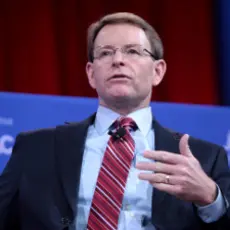Jerry Boykin talked about his new job as the executive vice president of the Family Research Council with FRC president Tony Perkins on Friday’s Washington Watch Weekly, where he said he will work to stop the Obama administration’s plans to “to penetrate this last bastion of morality and ethics, and that being the institution of the military, with its social experiments.” “If we allow the penetration of our military to continue,” Boykin added, “not only will our national security suffer but our culture as a whole will be in great jeopardy.” Boykin and Perkins later agreed that the repeal of Don’t Ask Don’t Tell will have devastating long term effects (despite all existing evidence) and that it undermined the sense of fellowship and camaraderie among service members.
Boykin: The administration has been on a campaign, I think, to penetrate this last bastion of morality and ethics, and that being the institution of the military, with its social experiments. So I’m very concerned and obviously as you and I have talked, one of my main focuses here will be trying to protect and defend and work with our military to try and maintain the values that our military has always had. I think it’s a warning to America that if we allow the penetration of our military to continue, not only will our national security suffer but our culture as a whole will be in great jeopardy.
…
Perkins: The history that we, you and I, have developed really goes back to when the administration wanted to overturn the policy that prohibited open homosexuality in the military and we pulled together a number of retired generals and there was some active duty individuals in there as well that were part of just advising and consulting. But that is so significant in terms of something that’s inconsistent with military service, readiness; the seeds have now been planted, while some are saying ‘it’s been almost a year and the military hasn’t imploded,’ that’s unrealistic, the effects of this are a number of years down the road, we’re already, however, seeing the erosion of religious liberty and religious freedom. Those are issues that folks who serve can’t speak to so they need a voice on the outside.
Boykin: Well, that’s right. People need to understand that when you are a member of the military service you do lose certain First Amendment rights and I don’t disagree with that, I lived with it for thirty six and a half years, but somebody has to speak for them. Tony, I think it’s important for us to remember, I don’t care and I know you don’t what people do behind closed doors in the privacy of their own bedroom, but as an institution the military is based on brotherhood, it’s based on camaraderie, it’s based on the strength and the character of the individual organizations that make up our military. No one has demonstrated that this in anyway is going to enhance the camaraderie, the fellowship, the brotherhood, nor is it going to enhance the war fighting capabilities. At the end of the day, the military’s only mission is going to fight and win the nation’s wars, and no one can show that this is going to help us.






